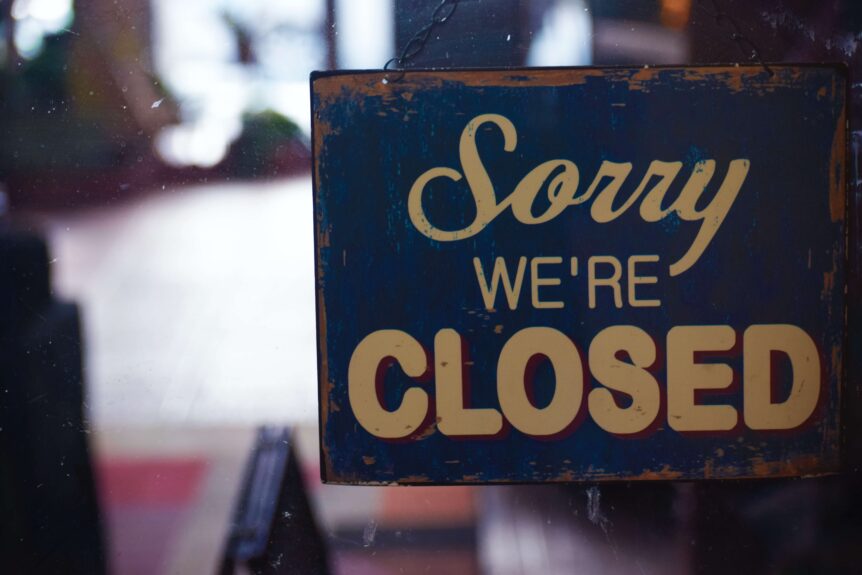All over the country, business interruption losses are occurring due to the need for people to remain inside their homes. As a result, brick-and-mortar businesses are suffering—after all, no business means no revenue.
While large organizations have the capability of surviving and paying salaries during a shutdown, many businesses are unable to. This includes the over 30 million small businesses operating in the U.S.
So where can a small business company turn? Where will you go? Who will you turn to in the event that a total shutdown occurs and your business spends significant time with no revenue?
The first thought that comes to mind is your insurance company, right? After all, the business has been paying them for protection in the event something should occur.
But not so fast. Insurance policies come loaded with page after page of confusing legal documentation. And instead of sifting through it all to see if your insurance company will cover your business interruption losses, we’ll show you what to look out for.
Is there any mention of coverage for non-physical damage?
When you were signing your paperwork to officially become an insured business owner, the last thing on your mind was the idea of a worldwide outbreak of a communicable disease. Your insurance was going to be there to cover you in the event of a fire, flood, hurricane, or any disaster.
But while you weren’t thinking of the possibility of an outbreak, your insurance company was. They think of everything, hence the abundance of paperwork.
If your policy mentions anything within the business interruption losses section of your policy regarding coverage for non-physical damage, then you should be safe.
While it’s doubtful the legal terminology used within the document will specifically mention coverage for losses due to communicable disease, any mention of coverage for non-physical damage is a good sign.
Check the Period of Restorations for restrictions
If your policy covers losses due to non-physical damage, you should also look into whether or not there are restrictions due to the duration of loss.
A typical insurance policy will have a Period of Restorations that defines a timeline of restoration as one with a beginning and end date close in range. Essentially, what they seek through their writing is that the business owner suffering the business interruption losses will act as quickly as possible to get things up and running again.
The importance of this term mentioned in your policy is that the coronavirus may cause significant shutdowns that could last for extended periods of time.
While the Period of Restorations for physical property can be short—if the owner acts with due diligence—there is no potential for a quick turnaround when it comes to government-regulated shutdowns.
Civil Authority coverage could be possible
If recovery for non-physical damages to your business is not attainable, another term to look for in your policy is Civil Authority coverage.
This type of coverage typically doesn’t deal with physical damage. Instead, it covers a business in the event of business interruption losses due to civil or military authority. This provision formed following 9/11 and the FAA’s closure of all air traffic.
In the event of shutdowns or mandatory quarantine due to coronavirus, you may be able to find coverage through your plan’s Civil Authority coverage.
Contingent Business Interruption insurance, or CBI
Another term to look for within your business insurance paperwork is Contingent Business Interruption insurance, or CBI. This type of coverage insures against business interruption losses due to the physical losses or damage suffered by a supplier.
CBI is intended to cover losses that will alter the business of the insured, but are not a direct physical impact to the business itself. Therefore, in the event of the coronavirus, a supplier in China may be shut down which results in shipments of certain supplies being stopped. If this is the case for your business, CBI coverage may be an option.
That being said, CBI coverage is typically intended to cover business interruption losses due to physical damage to a supplier’s building or location. Since there is no physical damage resulting in Chinese company shutdowns, this coverage may not be available.
Ingress/Egress
Ingress is defined as the right to enter one’s property and Egress is defined as the right to exit. If either of these are affected in any way, you may be able to recover business interruption losses.
This can be the case if you own a large building where events are hosted. At the time this article is written, several U.S. states have restricted public gatherings to under 250 people. In this case, your large building where events were hosted could fall under this provision.
However, most policies will have in their documentation that the Ingress/Egress coverage only applies to physical damage to the property so this could pose a challenge. The fear of person-to-person contagion hindering ingress/egress may not hold up, but the government bans could play an important role.
Is physical damage to your property possible with COVID-19?
To this point, we’ve listed all the ways to recoup losses for non-physical property damage. But that doesn’t mean your business can’t have physical property damage as well.
Think of what could happen to your property during a lockdown. Is your business closed already? Are there still valuable goods inside?
During harsh economic times such as the one we’re about to face if 37 million jobs are lost due to COVID-19 closures, looting becomes a serious concern. Your insurance paperwork will certainly have something written in the fine print regarding this situation and you should be prepared to fight should they deny a claim.
Is your insurance company fighting your business interruption losses claims?
It would be no surprise that insurance companies deny claims for business interruption losses. Even during these tough times when they know their clients are struggling, insurance companies are for-profit businesses and will continue to operate as such.
Within your policy paperwork, check for the terms listed within this article. Hopefully, they will give you a better understanding as to what you may or may not be able to recover in the event of the coronavirus effects.
If you need help looking through any of this documentation or simply want support to fight the insurance company that you already know will give you a tough time, we’re here to help. Call 305-800-HOME (4663).

